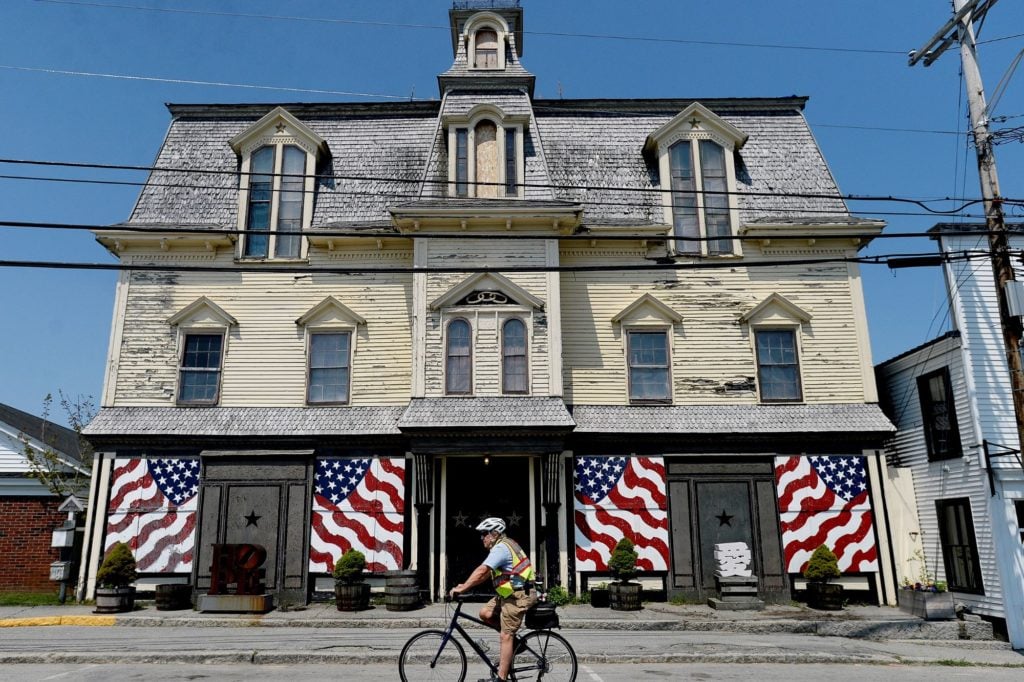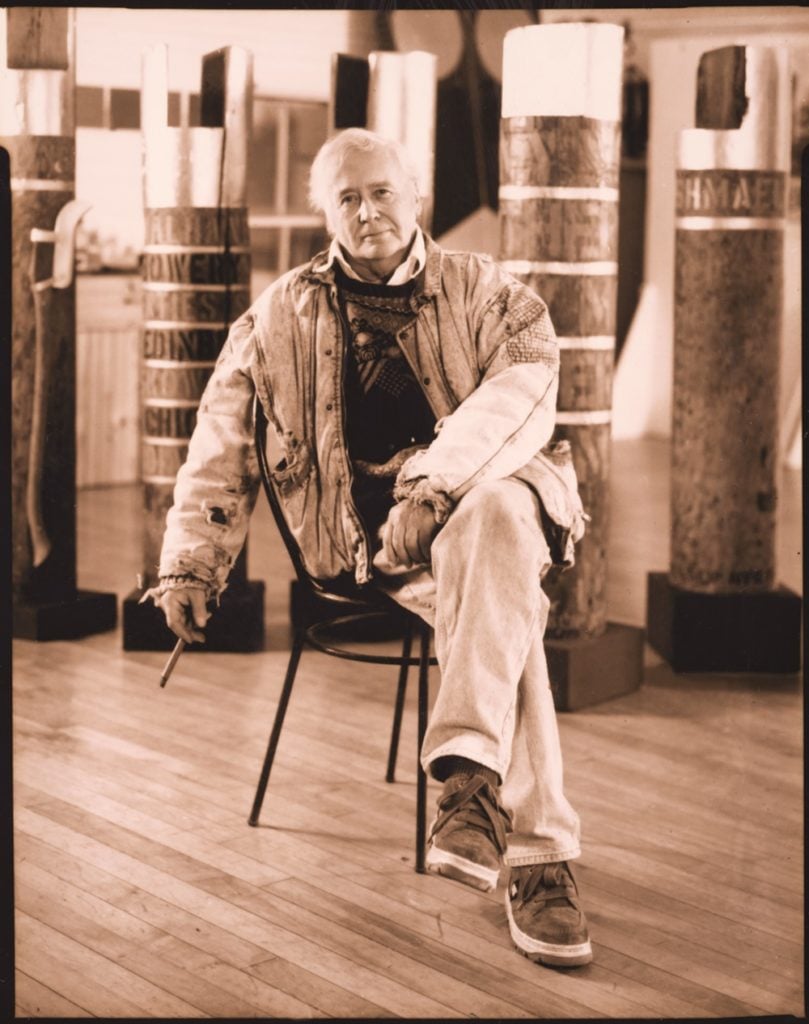Law & Politics
Robert Indiana’s Estate Accuses His Caretaker of Allowing the 89-Year-Old Artist to Live in ‘Squalor’ Before He Died
Lawyers for Jamie L. Thomas say he did not neglect the artist, from whom he "never stole a dime."

Lawyers for Jamie L. Thomas say he did not neglect the artist, from whom he "never stole a dime."

Naomi Rea

In the latest twist in the bitter legal battle over the legacy of the late sculptor Robert Indiana, the estate’s executor has accused the artist’s former caretaker of severe neglect. Court papers filed this week claim that Jamie L. Thomas allowed the 89-year-old artist, who had $13 million in the bank, to live in “squalor and filth” before his death in May 2018.
The serious claims—which Thomas vigorously denies—were made as the former caretaker sues the artist’s estate in an effort to collect millions of dollars to pay for legal fees in a separate case involving the sale of allegedly unauthorized late works by the artist famous for his “LOVE” sculptures.
In papers filed on Wednesday by lawyers for the estate’s executor James W. Brannan, Thomas is accused of neglecting his care-giving duties in the final years of Indiana’s life. Brannan also alleges that Thomas took $1.1 million without permission and stole 118 artworks and archival materials, claiming they were gifts from the ailing artist.
In a statement provided by his lawyer, Thomas said the legal filings “exhibit a dangerous, knowing, and willful disregard for the truth.”
The allegations were made in a countersuit to Thomas’s attempt to sue the estate for $2 million, which he launched in July. The former caretaker hopes to cover the legal fees from a different lawsuit filed against him by the Morgan Art Foundation in New York last year. The company, which was licensed to produce editions of Indiana’s work, accuses Thomas of working with an art dealer to produce unauthorized works under Indiana’s name.
“Beginning in or about 2016, Jamie L. Thomas took advantage of Indiana’s advancing age, isolation, frailties, and fame to develop a relationship of trust and control over the artist,” Brannan claims in papers filed in the Knox County Superior Court in Maine.

Robert Indiana in his studio, Vinalhaven, Maine. Photograph courtesy of Dennis and Diane Griggs.
Thomas was in control of the artist’s finances as well as his healthcare in the final years of his life, when the artist was living as a recluse on the remote island of Vinalhaven in Maine. The artist was nearly blind and suffering from memory loss and physical ailments. Indiana had $13 million in the bank, but when he died at his home, nicknamed the Star of Hope, it had fallen into severe disrepair, and was found to be “littered with animal feces and urine,” the court papers say. Parts of the home—which Indiana had hoped to turn into a museum dedicated to his life and work—were deemed uninhabitable after being “infested” with vermin and rot due to water damage, the lawsuit states.
(In a statement, Thomas says he was a “financial champion” to Indiana and had remedied four years of back taxes to the tune of $4.6 million.)
The new filing includes detailed allegations about how Thomas came to be so closely involved in Indiana’s business affairs. Thomas had worked as a handyman for the artist in the 1980s and ’90s before they had some sort of dispute, and Indiana stopped hiring him. It was not until 2013 that he resumed working for Indiana, bringing him food and walking his dog. He soon began to control who had access to Indiana, managing all his emails and phone calls, according to the suit. Thomas allegedly built up the artist’s trust to such a degree that when Indiana’s longtime assistant and co-executor of his will, Valerie Morton, passed away in 2015, Indiana became entirely dependent on him.
Brannan did not immediately respond to a request for comment.
Thomas’s lawyers have previously denied the allegations against him, saying the caretaker “never stole a dime” from the artist. Thomas’s lawyer, Thomas Hallett, said the allegations were simply being repeated from the earlier complaint by the Morgan Art Foundation. “Without question, Thomas was Indiana’s most trusted and respected confidant,” Hallett said in the suit filed in July. He adds that the artist was “extremely well cared-for” and was never neglected.